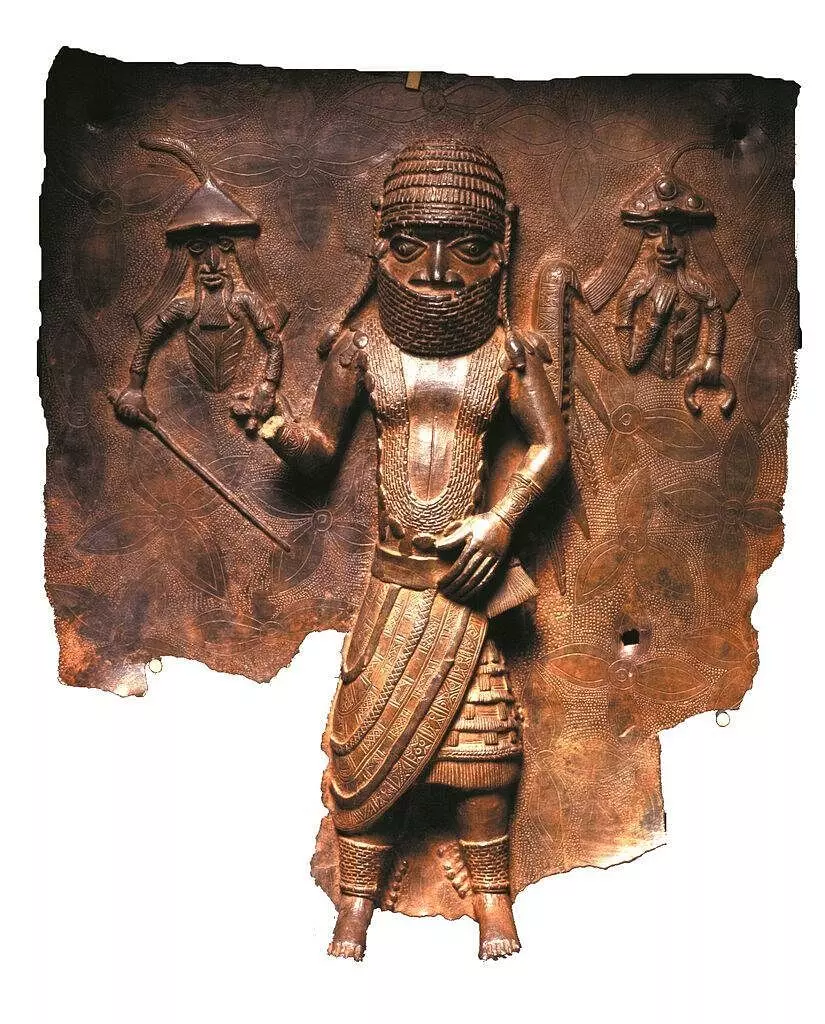
UK museum concedes returning of 'looted' 19th-century Nigerian Benin Bronzes
text_fieldsLondon: In response to pressure on cultural institutions throughout Britain to return items obtained during the colonial era, a London museum decided on Sunday to return a collection of Benin Bronzes stolen in the late 19th century from what is now Nigeria.
The Horniman Museum and Gardens in southeast London announced that it would return the Nigerian government a collection of 72 objects. The decision was made following discussions with local residents, artists, and schoolchildren in Nigeria and the U.K., as well as after the National Commission for Museums and Monuments of Nigeria formally requested the items' return earlier this year.
"The evidence is very clear that these objects were acquired through force, and external consultation supported our view that it is both moral and appropriate to return their ownership to Nigeria,'' Eve Salomon, chair of the museum's board of trustees, said in a statement. "The Horniman is pleased to be able to take this step, and we look forward to working with the NCMM to secure longer-term care for these precious artifacts.''
A tiny portion of the 3,000–5,000 objects captured from the Kingdom of Benin in 1897 when British troops invaded and occupied Benin City as Britain increased its political and economic sway in West Africa is represented by the Horniman Collection. More than 900 Beninian artefacts are housed in the British Museum alone, and 74 more are in National Museums Scotland. Some of them were given to museums all across the world.
The relics include plaques, animal and human figurines, and pieces of royal regalia created by artists who worked for the Beninese royal court in brass and bronze. Along with metal sculptures, additional objects made of ivory, coral, wood, and other materials are occasionally referred to as Benin Bronzes.
A global reevaluation of colonialism and the exploitation of local inhabitants has led to an increase in the demands for the return of artefacts and human remains from nations like Nigeria, Egypt, and Greece as well as indigenous peoples from North America to Australia.
A recent agreement for the return of hundreds of Benin Bronze medals was signed by Nigeria and Germany. That came after French President Emmanuel Macron decided to sign over 26 pieces known as the Abomey Treasures last year. These priceless works of art are from the 19th-century Dahomey kingdom, which is now Benin, a tiny nation to the west of Nigeria, the Associated Press reported.
However, British institutions took longer to react. In October of last year, the Federal Ministry of Information and Culture of Nigeria formally requested that the British Museum return its collection of Benin bronzes.
The museum announced on Sunday that it is collaborating with several Nigerian partners and that it is dedicated to conducting a "thorough and open investigation" into the background of the artefacts from Benin and the looting of Benin City.
"The museum is committed to active engagement with Nigerian institutions concerning the Benin Bronzes, including pursuing and supporting new initiatives developed in collaboration with Nigerian partners and colleagues," the British Museum says on its website.
The Horniman Museum has ties to the Age of Empire as well. When tea merchant Frederick Horniman allowed the public to view his collection of antiques from all around the world, the museum officially opened in 1890.
The museum started a "reset agenda" in the midst of the Black Lives Matter movement that aimed to "address long-standing issues of racism and discrimination within our history and collections, and a determination to set ourselves on a more sustainable course for the future.''
According to the museum's website, Frederick Horniman took advantage of low pricing in the Chinese tea trade as a result of Britain's opium sales in China and the employment of underpaid and occasionally forced labour.
The Horniman Museum is aware that some of the things it has been "obtained through colonial violence." These include a brass cockerel altarpiece, ivory and brass ceremonial items, brass bells, and a key to the king's palace, as well as the Horniman Collection of Benin Bronzes, which consists of 12 brass plaques. The bronzes are currently on exhibit, coupled with information recognising their unjust position and forced removal from Benin City.
"We recognize that we are at the beginning of a journey to be more inclusive in our stories and our practices, and there is much more we need to do," the museum says on its website. "This includes reviewing the future of collections that were taken by force or in unequal transactions."























